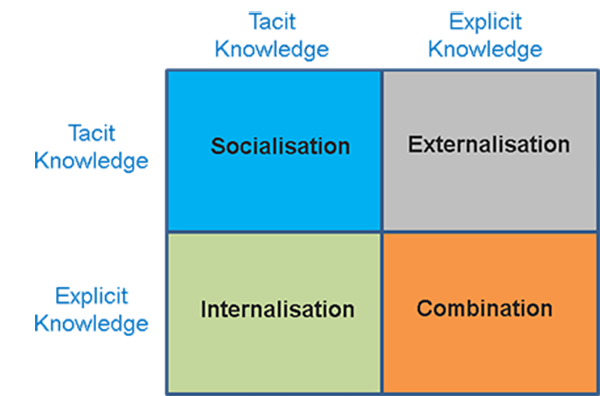ISO 9001:2015 and Effective Organizational Knowledge
Organizational knowledge within ISO 9001:2015 (clause 7.1.6) is a new requirement aimed at ensuring that an organization takes steps to capture and preserve knowledge, which is necessary for the effective operation of their processes and for ensuring the conformity of their products and services.
It is a broad requirement directed primarily at ensuring the organization either has or obtains the knowledge necessary to respond to changing business environments referred to in clause 4.1, (Understanding the organization and its context) changing customer and relevant interested party needs and expectations referred to in clause 4.2 (Understanding the needs and expectations of interested parties) and, where applicable, related improvement initiatives.
Reassessing organisational knowledge
As such, this requirement has strong links with management review activities. This knowledge needs to be maintained and made available to the extent necessary. Vitally, the organization can choose how best to do this. There is no explicit requirement for organizational knowledge to be held as documented information.
Nevertheless, the organization must re-assess the extent of its organizational knowledge if it is considering making changes to its quality management systems in response to changing needs or trends in its operational environment.
How do we demonstrate informed decisions?
Crucially, the organization needs to keep organizational knowledge current, and, if it is deemed insufficient, then the organization must take steps to enhance it. It is ultimately an attempt to ensure that organizations make informed decisions in respect of updates to their quality management systems.
For quality professionals, these elements are similar and comparable to the PDCA approach. When considered in this way, the requirements are less daunting and rather simpler to consider.
But as a guide, establishing knowledge and competence goals at the start of the process is good practice to ensure organizations can achieve the identified goals and objectives.
So what is organizational knowledge?
The notes to clause 7.1.6 give good examples of what “organizational knowledge” can include and be defined as well as to how additional knowledge can be obtained.
Note 1: states: “Organizational knowledge is knowledge specific to the organization; generally gained by experience. It’s information that’s used and shared to achieve the organization's objectives.”
Note 2: “Organizational knowledge can be based on:
-
Internal Sources (for example intellectual property, knowledge gained from experience, lessons learned from failures and successful projects, capturing and sharing undocumented knowledge and experience; the results of improvements in processes, products and services);
-
External Sources (For example standards, academia, conferences, gathering knowledge from customers or external providers).”
How can we communicate organizational knowledge internally?
Quality professionals should ensure that they introduce appropriate activities and/or mechanisms to address the requirements above.

Image 1: The SECI Model (Nonanka & Takuchi, 1995).
Transforming tacit knowledge into explicit knowledge can be achieved with simple and effective methods, such as:
- Process-flow and work instructions
- Reports and minutes of meetings
- Statements, newsletters and memoranda
- Operational Guides
Organizational knowledge is, in the end, key to the ability of a business to deliver within its organizational context.
ISO 9001 Assessor – Dr. Margaret Rooney, explains more on the requirements of organizational knowledge within NQA’s ISO 9001 Essentials Webinar. access this ISO 9001:2015 Essentials webinar recording or join our live ISO 9001:2015 Essentials webinar broadcasts.
Andrew Holt is Technical Content Executive at the CQI.
Access FREE White Papers from the CQI on ISO 9001:2015.
